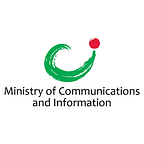Passion Made Possible with TeSA
Thanks to the Tech Skills Accelerator (TeSA), Mr Heng Yong Sheng managed to turn his love for data science into a new career, helping patients to receive better quality care.
Most patients will probably never meet Mr Heng Yong Sheng, but like the doctors and nurses of Tan Tock Seng Hospital (TTSH), the Management Information Analyst works hard to provide the best healthcare for them. Working with data generated from information systems, Yong Sheng analyses them to glean precious insights that the hospital can then use to improve their operations or services.
“Data can help to identify bottlenecks,” explains the analyst, one of 23 working in the hospital’s Office of Clinical Epidemiology, Analytics and kNowledge (OCEAN). “Insights and knowledge can be extracted from the vast amount of data available, and actions can be taken to improve systems, processes and empower clinicians to deliver better care.”
He points to his on-going data analytics project, which predicts how long patients tend to stay in the hospital. Employing machine learning techniques and algorithms on operational and clinical insights generated from TTSH and the Health Information Systems (IHiS)Healthcare Intelligence (HI) system, Yong Sheng has been hard at work studying the factors — such as patient demographics — that influence this. The aim is to develop a reliable predictive model, so that the hospital can provide better discharge planning for patients. For example, by knowing when patients are likely to be discharged, the hospital can plan ahead. “If you know how long patients will stay, you can optimally schedule all the necessary services which could include rehabilitation care and partner with patients and their family for discharge planning. This way, there should not be any unnecessary wait,” he says.
Beyond crunching numbers to ensure patients get the required care, Yong Sheng’s work also helps the hospital deliver better and more efficient healthcare services. “Being able to forecast future demand can help management better plan resources so there will not be any big shortages,” he explains.
Using data science to improve the lives of others was only an ‘interest’ the 28-year-old developed outside of work some three years ago. The then quality engineer in the manufacturing industry decided to switch professions when he was intrigued about how data science could make lives better. At first, the engineering graduate took up free online courses. But he jumped on the opportunity to receive professional training when he chanced upon TeSA, an initiative by the Infocomm Media Development Authority to build and develop a skilled ICT workforce for Singapore.
Through TeSA’s Company-Led Training (CLT) programme, Yong Sheng underwent a 3-months course with SAS, a data analytics and management service provider. There, he learnt data visualisation, data management, data analytics, and other tools of the trade before being attached to a company for a six months on-the-job training. Yong Sheng joined TTSH after and did well enough to secure a full-time job in the hospital.
While the transition from engineering into data science was challenging, Yong Sheng says this was made smoother because SAS provided a mentor as well as an opportunity to work in an organisation. Throughout the training period, he was also paid a monthly stipend too.
“The CLT is a well-structured programme with training and attachment which offers the practical application skills,” he adds. “What you learn in the classroom might be different from what you experience in reality. Data may be less clean so you have find ways to work with that.”
Having successfully turned his passion for data science into a meaningful career, Yong Sheng encourages others with similar interest to make the switch too. For a start, he suggests taking up online courses first to gauge interest levels in the areas of data and technology. Although Yong Sheng entered the profession trained differently from most MIS analysts (who usually have statistics or programming backgrounds), he still found his industrial and systems engineering training useful as it allowed him to apply critical and analytical thinking in the field of data science.
Yong Sheng looks forward to the day when TTSH’s patients can enjoy the benefits derived from the insights of his data analytics. “In healthcare, there will always be data generated and routinely collected, such as operation data, length of stay, and waiting time,” he says. “I can see myself bringing impact to patients through my analytics work in the future by providing insights for better care.”
An ICT professional, or aspiring to join or convert to the ICT profession? The TeSA— a SkillsFuture initiative driven by the Infocomm Media Development Authority, together with Workforce Singapore and SkillsFuture Singapore — offers various programmes to support current ICT and non-ICT professionals to upgrade and acquire new skills, stay competitive and meet the challenges of a fast-moving digital landscape.
For more information, visit: www.imtalent.sg/TeSA
